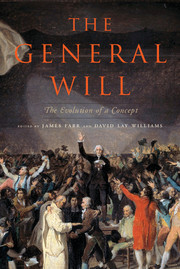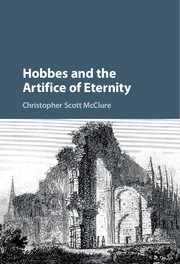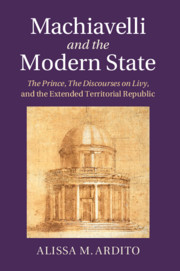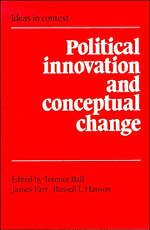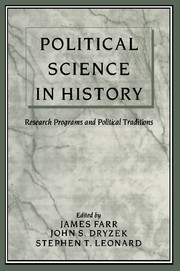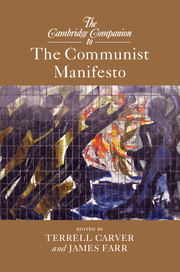The General Will
Although it originated in theological debates, the general will ultimately became one of the most celebrated and denigrated concepts emerging from early modern political thought. Jean-Jacques Rousseau made it the central element of his political theory, and it took on a life of its own during the French Revolution, before being subjected to generations of embrace or opprobrium. James Farr and David Lay Williams have collected for the first time a set of essays that track the evolving history of the general will from its origins to recent times. The General Will: The Evolution of a Concept discusses the general will's theological, political, formal, and substantive dimensions with a careful eye toward the concept's virtues and limitations as understood by its expositors and critics, among them Arnauld, Pascal, Malebranche, Leibniz, Locke, Spinoza, Montesquieu, Kant, Constant, Tocqueville, Adam Smith and John Rawls.
- The first volume dedicated to tracing the long history of the general will from its foundations to the twentieth century
- Offers a reprint of Patrick Riley's expanded essay on the 'General Will before Rousseau', which has long been unavailable
- Provides an account of important philosophers' encounters with the general will - previously unknown or uninvestigated
Reviews & endorsements
"An original and wide-ranging inquiry into the general will before, in, and after Rousseau. There is no other work quite like this one, and it fills an important gap in the voluminous scholarly literature on the general will. Professors Farr and Williams have assembled a group of eminent scholars, each of whom contributes an essay remarkable for its range and erudition."
Terence Ball, Arizona State University
"This is conceptual history at its best. A formidable team elucidates, illuminates and revalues a fundamental expression in the lexicon of political thought. Tracing a great arch that stretches from Antoine Arnauld to John Rawls, with Rousseau as its capstone, this book tackles the riddle of democracy. What is it that we create when individual and free wills, having a conception of the good as their aim, constitute a sovereign people?"
Mark Goldie, Fellow of Churchill College, University of Cambridge
"The general will remains one of the most challenging and perplexing concepts in the history of political thought. This excellent collection of essays, inspired by Patrick Riley’s pathbreaking work, examines the antecedents of the general will, its genealogy, its expression within Rousseau’s thought, and its reception by subsequent theorists and critics. There is no other volume on the general will approaching its breadth. It is indispensable for anyone who seeks to understand the development of this central idea in modern political thought."
Melissa Schwartzberg, New York University
"This book shows how fundamental the concept of the general will is in liberal and republican political thought. It also masterfully teaches us that we can and must discuss and criticize the idea of the general will, but we cannot put it away, if we want to continue to hope to have free political institutions and citizens worth the name."
Maurizio Viroli, University of Texas, Austin
"Farr and Williams have given us the definitive volume on the history of the concept of the general will. Building on Patrick Riley’s groundbreaking work, this distinguished group of scholars traces the concept from its earliest use in theological debate, through the early modern period, to its classic expression in the work of Rousseau, and then beyond Rousseau to modern contractarians. The General Will is essential reading for political theorists, philosophers and historians of ideas."
Elisabeth Ellis, University of Otago
Product details
February 2015Hardback
9781107057012
535 pages
235 × 158 × 28 mm
0.86kg
Available
Table of Contents
- Part I. The General Will before Rousseau:
- 1. The general will before Rousseau: the contributions of Arnauld, Pascal, Malebranche, Bayle, and Bossuet Patrick Riley
- 2. Malebranche's shadow: divine providence and general will in the Leibniz-Arnauld correspondence Steven Nadler
- 3. Locke's ideas, Rousseau's principles, and the general will James Farr
- 4. Spinoza and the general will David Lay Williams
- 5. Freedom, sovereignty, and the general will in Montesquieu Sharon R. Krause
- Part II. The Prehistory of the General Will:
- 6. Rethinking Rousseau's tyranny of orators: Cicero's On Duties and the beauty of true glory Daniel J. Kapust
- 7. An American general will?: 'The bond of brotherly affection' in New England Andrew R. Murphy
- Part III. The General Will in Rousseau:
- 8. The substantive elements of Rousseau's general will David Lay Williams
- 9. Justice, beneficence, and boundaries: Rousseau and the paradox of generality Richard Boyd
- 10. On the general will of humanity: global connections in Rousseau's political thought Sankar Muthu
- 11. The general will in Rousseau and after Rousseau Tracy B. Strong
- Part IV. The General Will after Rousseau:
- 12. Kant on the general will Patrick Riley
- 13. The general will after Rousseau: Smith and Rousseau on sociability and inequality Shannon Stimson
- 14. Benjamin Constant's liberalism and the political theology of the general will Bryan Garsten
- 15. The general will after Rousseau: the case of Tocqueville Michael Locke McLendon
- 16. Rawls on Rousseau and the general will Christopher Brooke.

